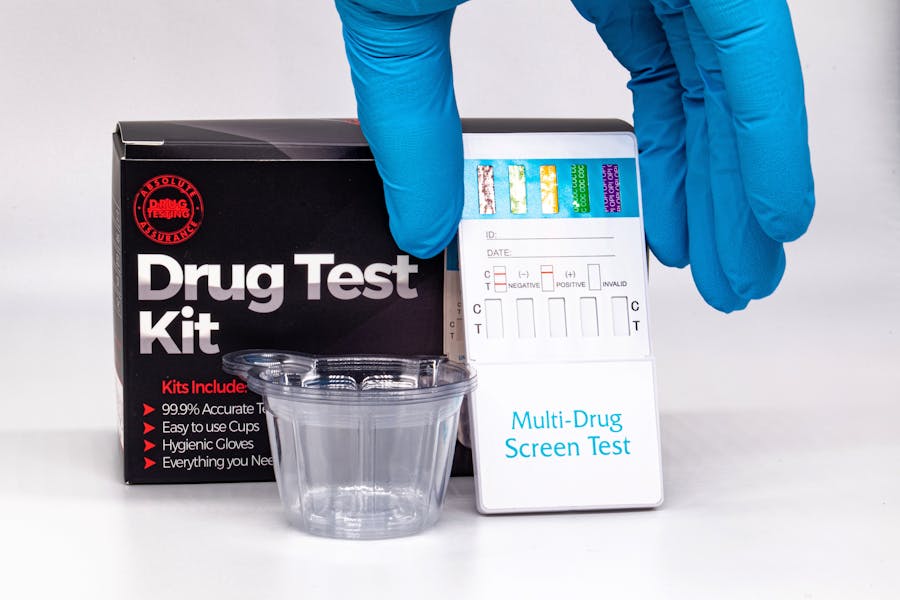Pre-employment drug tests are a common requirement for many jobs, ensuring that candidates meet workplace safety and compliance regulations. If you’ve taken a drug test, you might be anxiously wondering, “How do you know if you passed a pre-employment drug test?” Understanding the process, result timelines, and indicators of passing can help ease your concerns. This article will break down everything you need to know about pre-employment drug tests, including how results are determined, what factors can influence outcomes, and what to do if you fail.
Drug testing is widely used by employers to maintain a drug-free workplace, reduce workplace accidents, and ensure employees are in a fit state to perform their duties. Companies often have policies regarding pre-employment drug testing, and failure to comply with these policies may result in disqualification from the hiring process. Therefore, understanding the different types of drug tests and how they function is essential for job seekers.
Understanding the Pre-Employment Drug Test Process
Pre-employment drug testing is a routine screening conducted by employers to check for substance use. Various types of drug tests exist, including urine, blood, hair follicle, and saliva tests. These tests detect substances such as marijuana, cocaine, opioids, amphetamines, and alcohol. The testing process generally involves providing a sample at a designated facility, where laboratory professionals analyze it for any prohibited substances.
Urine drug testing is the most commonly used method due to its cost-effectiveness and accuracy. Employers rely on urinalysis to detect drug metabolites in the body. Blood tests, although more precise, are less common due to their invasive nature and shorter detection window. Hair follicle testing can detect drug use up to 90 days prior, making it ideal for identifying long-term drug use. Saliva tests are gaining popularity due to their non-invasive nature and quick results.
Most employers conduct these tests as a standard procedure before making a final hiring decision. The results typically come back within 24 hours to a few days, depending on the testing method. Employers may notify candidates of their results, but in many cases, no news is good news. If you haven’t been contacted about failing the test, there’s a strong chance you passed. Understanding the testing procedures and timelines can help reduce anxiety and uncertainty while waiting for results.
How Long Does It Take to Get Drug Test Results?
Urine Drug Test Timeline
Urine drug tests are the most common type of pre-employment drug screening. Results are typically available within 24-48 hours for negative tests, while positive results may take longer due to confirmatory testing. If additional confirmatory testing is required, the results may take 3-5 business days.
Blood Drug Test Timeline
Blood tests provide immediate detection of substances and are usually completed within 24 hours. These tests are less common but may be required in specific industries. Since the detection window is short, employers mainly use blood tests in post-accident or reasonable suspicion testing.
Hair Follicle Drug Test Timeline
Hair follicle tests can detect drug use over a longer period (up to 90 days). Processing these tests can take 4-10 days, making them less common for urgent hiring decisions. These tests are typically used in high-risk industries where long-term substance use must be assessed.
Saliva Drug Test Timeline
Saliva tests are quick and non-invasive, providing results within minutes to 24 hours. They are often used for immediate testing in workplaces. Saliva tests have a shorter detection window (up to 48 hours) compared to other tests, making them ideal for detecting recent drug use.
Signs That Indicate You Passed Your Drug Test
If you’re wondering whether you passed your pre-employment drug test, several key signs can help you determine the outcome. While employers may not always provide immediate updates, the following indicators can give you a good idea of your results.
1. No Communication from the Employer
- Many employers follow a “no news is good news” approach.
- If there’s an issue with your test, they are more likely to reach out.
- If you haven’t been contacted after a reasonable period, it’s a positive sign.
2. Progression in the Hiring Process
- If the company continues moving forward with your application, it likely means you passed.
- Receiving an invitation for onboarding, training, or next steps in hiring suggests no issues with your test.
- Employers typically halt the hiring process if a candidate fails the test.
3. Access to Online Test Results
- Some drug testing labs allow candidates to check their results through an online portal.
- If your test results show “Negative” or “Passed,” you have successfully cleared it.
- If no results are available after a reasonable period, you can follow up with the lab.
4. Receipt of a Job Offer
- Employers usually extend job offers only after ensuring all pre-employment requirements are met.
- If you receive a formal offer, it’s a strong indication that you passed the drug test.
- Delays in receiving an offer might mean additional verification is required.
5. Employer’s HR Confirmation
- If you haven’t heard back after a reasonable timeframe, consider contacting HR.
- Ask professionally about the status of your background check and drug test.
- HR representatives can provide clarity on whether your test results were received and cleared.
By keeping an eye on these signs, you can better understand your hiring status and whether you have successfully passed your pre-employment drug test.
What to Do If You Fail a Pre-Employment Drug Test
- Failing a pre-employment drug test can be discouraging, but it doesn’t necessarily mean the end of your job prospects. The first step is to determine whether the result is accurate. If you believe there was an error, you have the right to request a retest. False positives can sometimes occur due to prescription medications, certain over-the-counter drugs, or even specific foods. If you were taking any prescribed medication at the time of testing, providing documentation to the employer or testing facility may help clarify the situation.
- Understanding the company’s drug testing policies is crucial in determining your next steps. Some employers have strict policies that may disqualify candidates indefinitely, especially in regulated industries like healthcare and transportation. However, other companies may have rehabilitation or reapplication policies that allow candidates to retake the test after a certain period. If your employer offers such options, you may have another opportunity to demonstrate that you are drug-free.
- If you feel that the test result was unfair or that you were wrongly disqualified, consulting with an employment lawyer could help you explore possible legal options. Certain protections may be available, especially if prescription medication played a role in the test outcome.
- To prevent future issues, keep track of any medications you take and inform the testing facility of any prescriptions before your test. Transparency with employers about necessary medications can help avoid misunderstandings and ensure accurate test results. While failing a pre-employment drug test can be a setback, taking the right steps can help you move forward and improve your chances ofsecuring future employment.
Employer Policies on Pre-Employment Drug Testing
Why Do Employers Conduct Drug Tests?
Many companies implement drug tests to ensure workplace safety, compliance with legal regulations, and productivity among employees. A drug-free environment helps prevent accidents, improves performance, and protects company liability.
What Happens If You Fail?
Employers may withdraw job offers, place candidates in rehabilitation programs, or provide second chances based on company policies. Some organizations have zero-tolerance policies, leading to immediate disqualification.
How Often Are Pre-Employment Drug Tests Required?
It depends on the industry. High-risk industries like transportation and healthcare conduct regular screenings. Some companies also conduct random drug testing throughout employment.
Are There Legal Protections for Employees?
Certain states have laws that regulate drug testing and protect employees’ rights. Laws regarding medical marijuana and workplace drug testing vary by state, so knowing your rights is important.
Bottom Line
Understanding how do you know if you passed a pre-employment drug test is crucial when navigating the hiring process. If you don’t receive any negative feedback within a few days, chances are you passed. However, staying informed about employer policies and testing procedures ensures that you remain prepared. If you fail, consider retesting options or making necessary lifestyle changes before reapplying.
FAQ’s
Q. How long does it take to receive drug test results?
A. Most urine test results are available within 24-48 hours, while hair follicle tests may take up to 10 days.
Q. Can you check your pre-employment drug test results online?
A. Some testing centers provide online access to results, but this depends on the lab and employer’s policies.
Q. What happens if I fail my pre-employment drug test?
A. Employers may rescind the job offer or provide an opportunity for retesting, depending on company policy.
Q. Can medications cause a false positive on a drug test?
A. Yes, some prescription medications can lead to false positives. Always inform the lab of any medications you are taking.
Q. Does a failed drug test stay on your record?
A. A failed test may be noted in an employer’s records, but it typically does not appear on a background check unless required by industry regulations.








